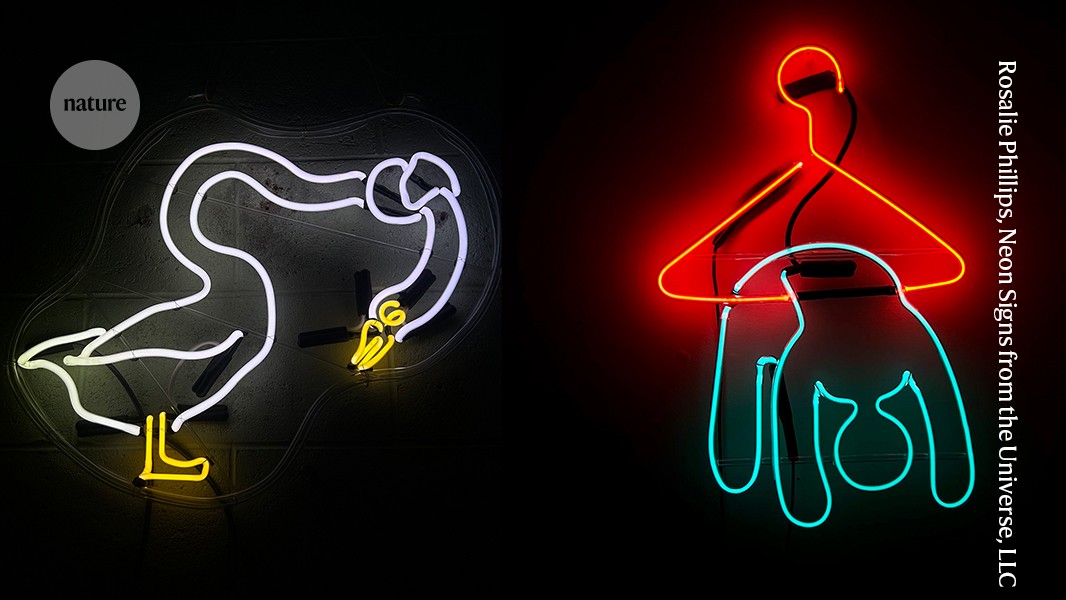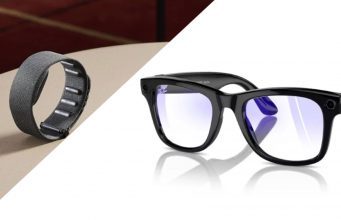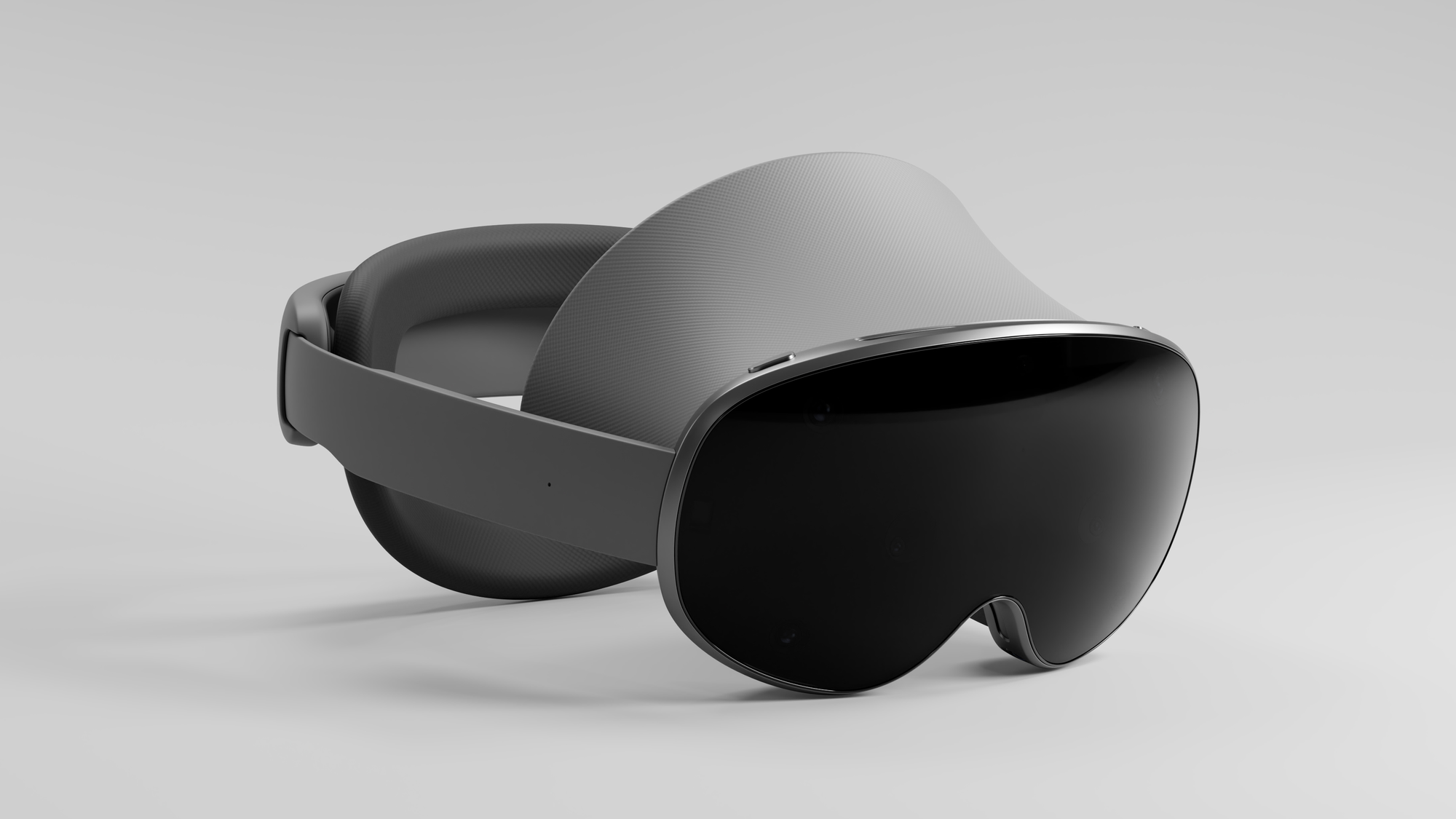Meta HUD Glasses Price, Features & Input Device Reportedly Revealed
A new Bloomberg report details the price and features of Meta's upcoming HUD glasses, and claims that Meta's neural wristband will be in the box.


A new Bloomberg report details the price and features of Meta's upcoming HUD glasses, and claims that Meta's neural wristband will be in the box.
The Verge, The Information, The Financial Times, and Bloomberg's Mark Gurman have all previously reported that Meta intends to release smart glasses with a heads-up display (HUD) in late 2025, codenamed Hypernova.
Now Gurman seems to have had the chance to try a prototype of Hypernova and speak to people working on it.
According to Gurman's sources, Hypernova will be priced "over $1000 and as high as $1300 to $1400". Compared to the existing Ray-Ban Meta glasses, which will continue to be sold as a more affordable alternative, Hypernova will add a small monocular display in the lower region of the right lens, feature a higher quality camera, and come with Meta's long-in-development neural wristband in the box. It won't include Ray-Ban branding, so should be Meta's first own-brand glasses.
Hypernova will include all the features of the Ray-Ban Meta glasses, including a button to capture photos and videos, Meta AI access, and Bluetooth audio streaming for calls, music, audiobooks, and podcasts, Gurman says. But it will also have a user interface with "apps", including Camera, Photos, and Maps, and show select notifications from your phone.
While you'll be able to swipe and tap the right arm of Hypernova to control audio (as with the Ray-Ban Meta glasses) or launch and use these apps, the faster and less arduous way to control Hypernova will be via the sEMG wristband, which Meta publicly demoed with the Orion prototype at Connect 2024.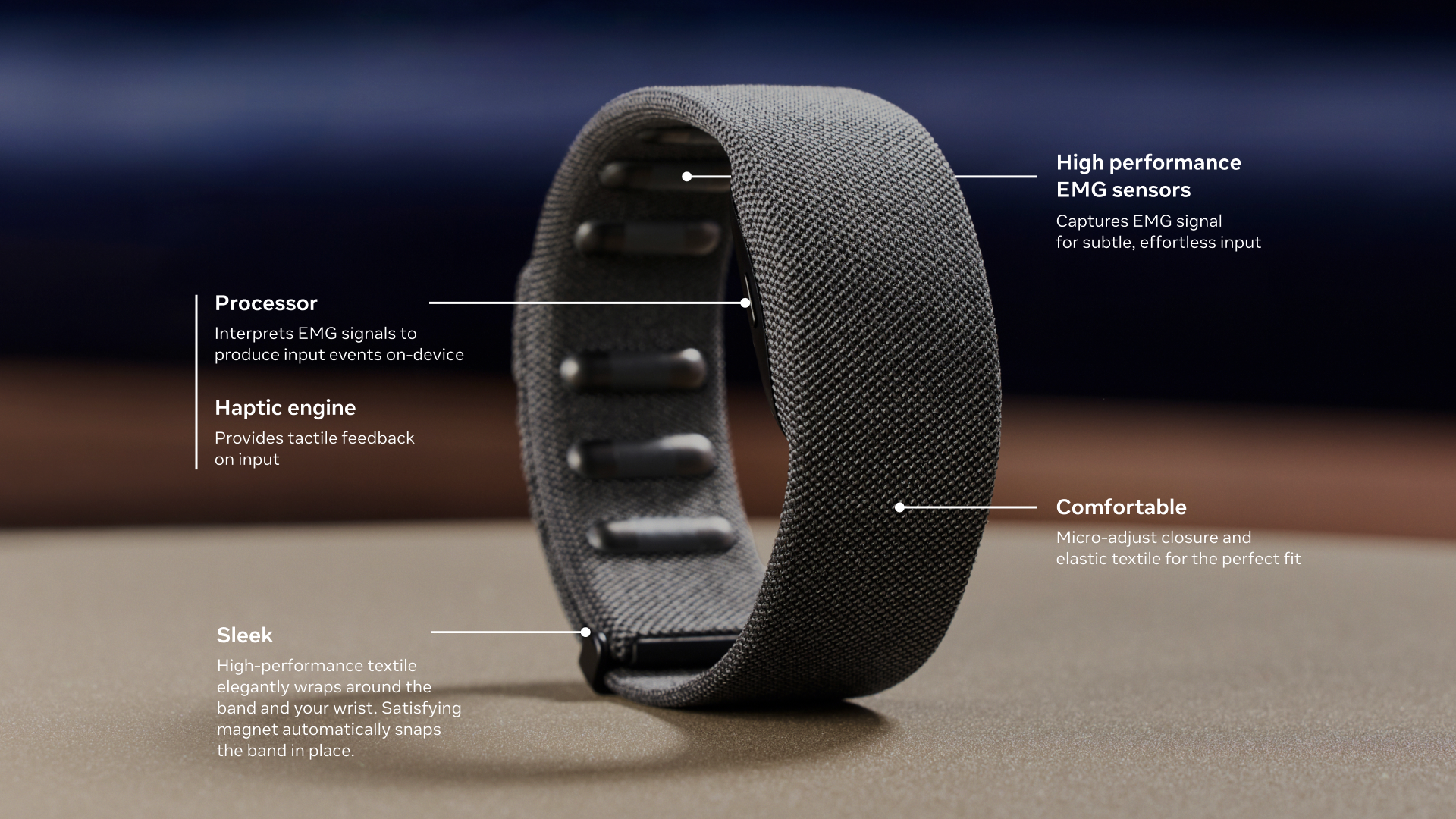
When wearing the wristband, Gurman says you can rotate your hand to scroll through apps and photos and pinch to select.
Hypernova will include a new charging case which is "shaped like a triangular prism and folds up", Gurman writes, though he doesn't say whether it will hold and charge both the glasses and wristband.
As for the upgraded camera, Gurman says that Meta considers the Ray-Ban Meta camera to be equivalent to an iPhone 11, it hopes Hypernova's will rival the iPhone 13.
Meta's Other Glasses Plans
Hypernova won't be Meta's only new smart glasses this year, and Meta plans more glasses products in future years too.
Hypernova isn't made in partnership with EssilorLuxottica, the owner of Ray-Ban, but Gurman previously reported that Meta plans to build on its partnership with the eyewear giant to release Oakley Meta glasses later this year too. While the Ray-Ban glasses have a camera on one side and are aimed towards all consumers, the Oakley glasses will have the camera in the center and be intended for "cyclists and other athletes".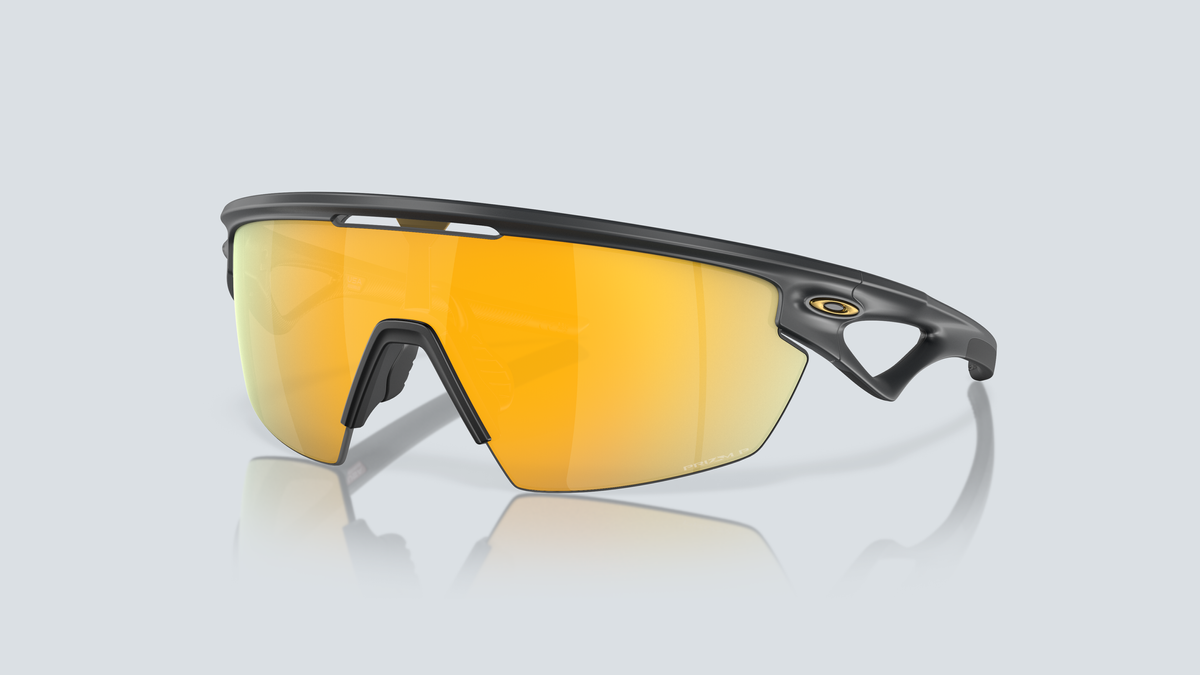
In 2027, Gurman reports that Meta plans to launch upgraded HUD glasses codenamed Hypernova 2, a binocular device with a display in each eye.
But Meta's biggest goal, which the company has repeatedly publicly stated, is to bring true AR glasses to market. Compared to HUD glasses, which just have a small fixed-position display area, true AR glasses feature positional tracking and wide field of view such that they can position virtual windows and objects in real space.
At Meta Connect 2024 Meta showed off the Orion prototype, the first fully-integrated AR device with a relatively wide field of view in true glasses form factor. But the company admitted that Orion itself won't become a product, as it relies on a material that isn't yet possible to affordably manufacture at scale, and won't be any time soon, such that each unit would cost around $10,000 to make.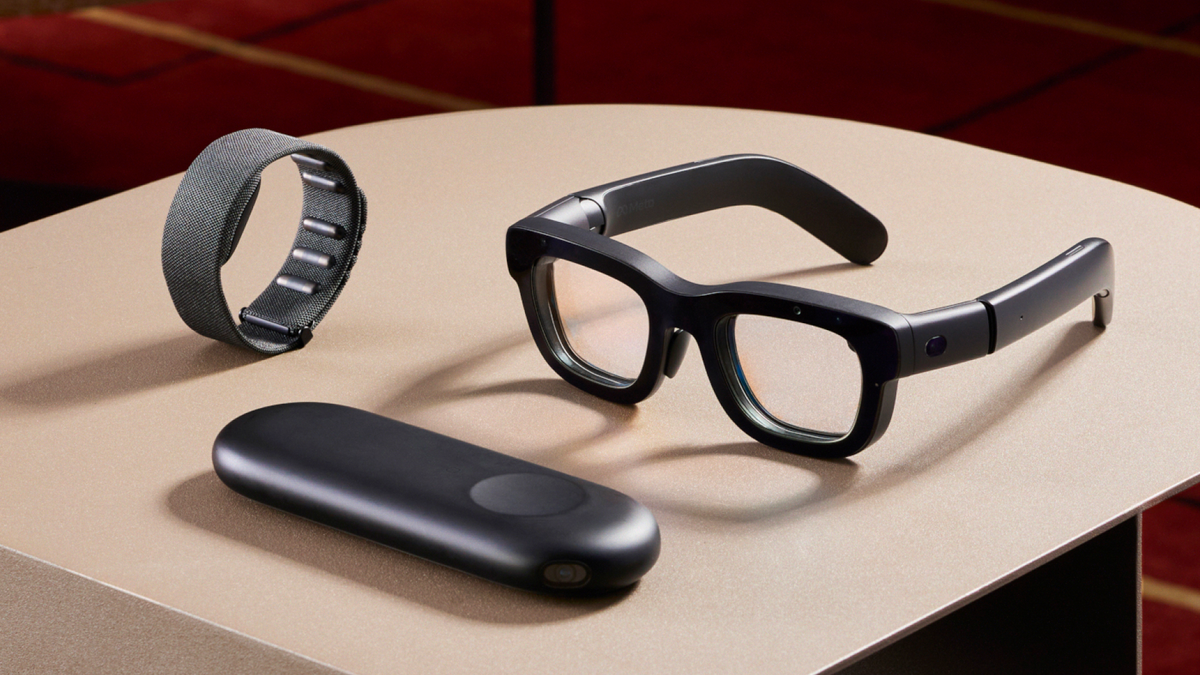
As such, Meta is building a separate AR glasses product, codenamed Artemis, that the company revealed to The Verge's Alex Heath will use glass, the same material as Snap Spectacles and earlier AR devices like HoloLens and Magic Leap. This means that Meta's Artemis will not have the signature wide field of view of Orion.
Like the Hypernova 2 binocular HUD glasses, the Artemis true AR glasses are reportedly set to arrive in 2027. But Meta's plans can always change, and Gurman says that there are active discussions within the company as to whether to continue the HUD glasses line at all in the, or eventually just offer displayless glasses and true AR glasses with no middle option.



















































